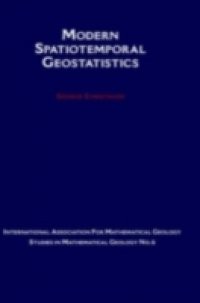It is widely recognized that the techniques of classical geostatistics, which have been used for several decades, have reached their limit, and the time has come for some alternative approaches to be given a chance. This book, therefore, is an introduction to the fundamentals of modern geostatistics, which is a group of spatiotemporal concepts and methods that are the products of the advancement of the epistemic status of stochastic data analysis. The latter is considered from a novel perspective, promoting the view that a deeper understanding of a theory of knowledge is an important prerequisite for the development of improved mathematical models of scientific mapping. The main focus of the book is the Bayesian Maximum Entropy (BME) approach for studying spatiotemporal distributions of natural variables. As part of the modern geostatistics paradigm, the BME approach provides a fundamental insight into the mapping problem in which the knowledge of a natural variable, not the variable itself, is the direct object of study. The thread running throughout the book is that the modern geostatistical approach to environmental problems is that of natural scientists who are more interested in a stochastic analysis concerned with both the ontological level(building models for physical systems) and the epistemic level (using what we know about the physical systems and integrating and modeling knowledge from a variety of scientific disciplines), rather than in the pure naive inductive account of science based merely on a linear relationship between data and hypotheses and theory-free techniques that may be useful in other areas.

